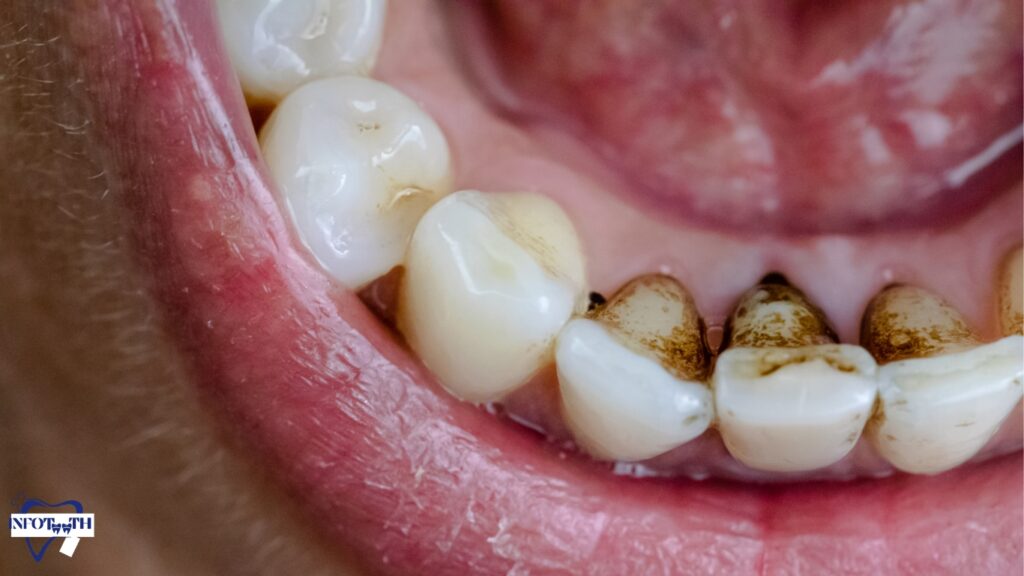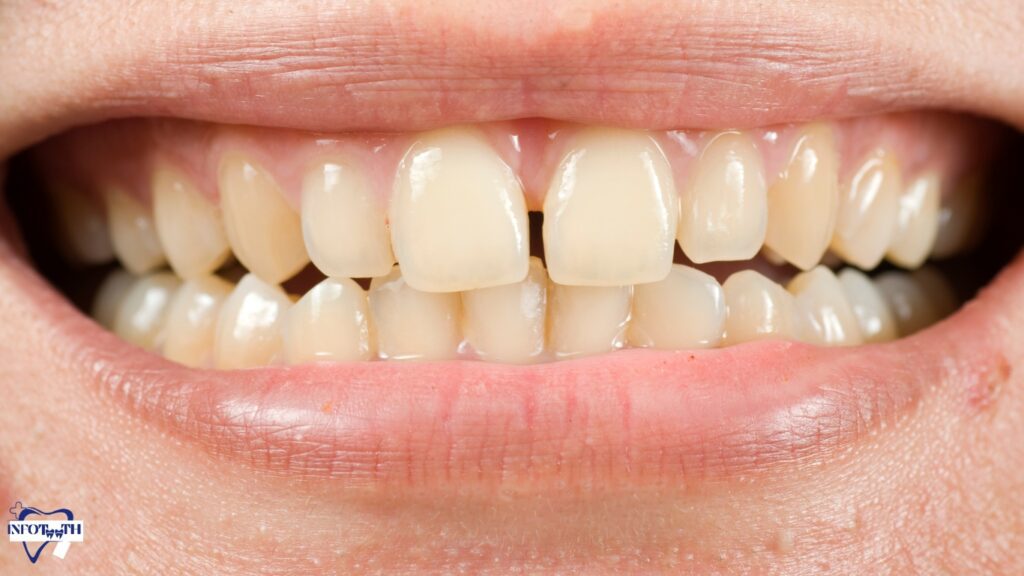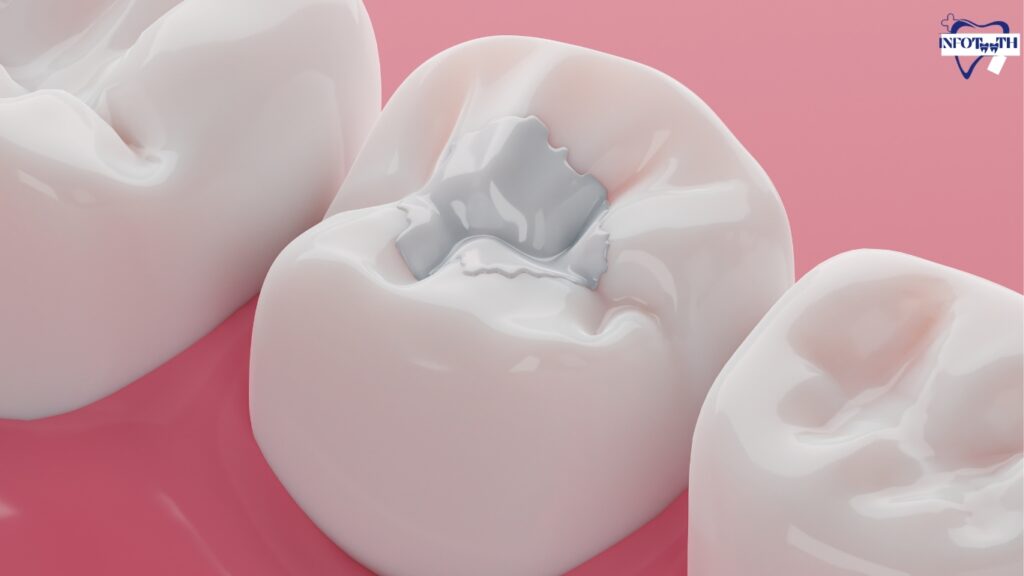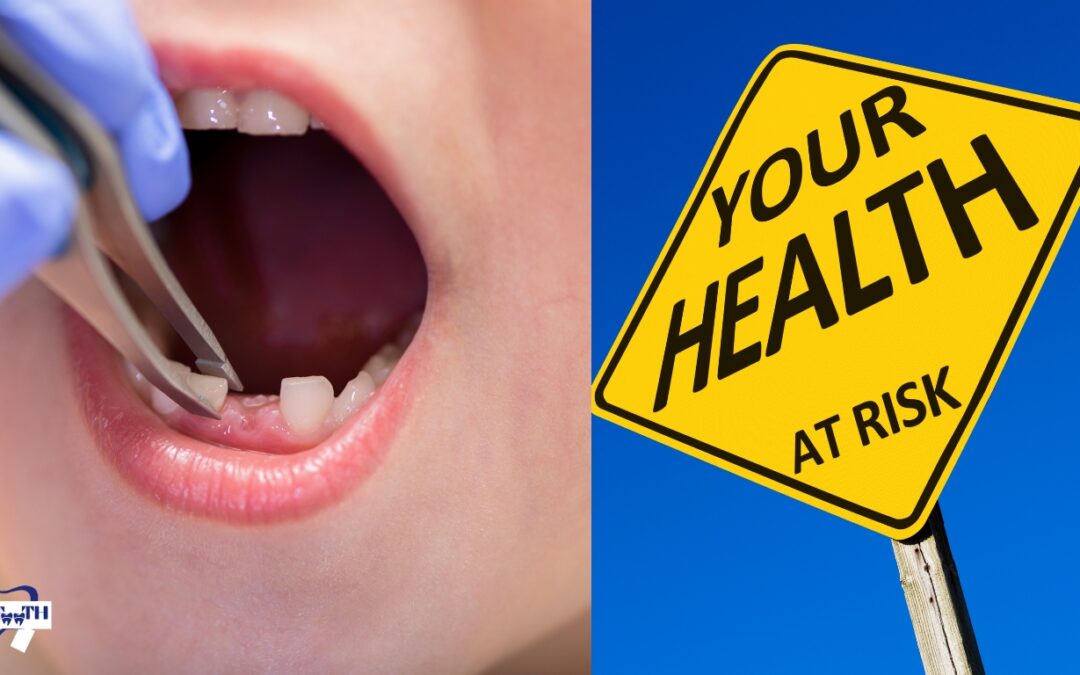Signs your teeth are falling out despite being a vital component of general health, dental health is sometimes disregarded until problems become evident. Teeth alterations with age can be common, but it’s important to recognize the difference between normal aging and indications of underlying issues. Maintaining oral health begins with knowing the difference between normal aging and possible tooth issues.
Table of Contents
While some changes with aging are to be expected, other symptoms might cause concern and necessitate a dental appointment.
Major signs your teeth are falling out
It is important to pay attention to the early warning signs your teeth are falling out, which are subtle but significant signals. By being aware of these indicators, people can take proactive measures to maintain their dental health:
Stains and Discolorations:
Teeth discoloration or yellowing could be Signs your teeth are falling out or other problems that are compromising the health of the teeth.

Sensitivity:
When discussing Signs your teeth are falling out enhanced susceptibility to extreme heat or cold signals the possibility of issues such as gum recession, cavities, or enamel erosion.
Gums that are bleeding:
When brushing or flossing, healthy gums shouldn’t bleed; gum disease may be indicated by chronic bleeding.

Poor Breath:
Even with proper oral hygiene, persistent, unexplained foul breath could indicate underlying dental problems.
Unfastened Teeth:
The feeling of teeth coming loose are Signs your teeth are falling out with the supporting tissues.
Alterations in bite:
Unexpected changes in the bite or dental alignment could be a sign of problems that could cause teeth to move.
Spaces Between Teeth:
Teeth becoming spaced apart could indicate periodontal disease or other problems with the supporting bone structures.

Jaw Soreness:
Jaw pain that clicks, in particular, may be a signs your teeth are falling out with the temporomandibular joint (TMJ), which can impact the stability of teeth.
Impact of Diet and Nutrition:
The relationship between general health and oral well-being is highlighted by the fact that poor nutrition can aggravate dental issues.
How to know if you lost a permanent tooth?
Signs your teeth are falling out-While losing a permanent tooth might be upsetting, acting quickly can frequently have a major impact on the outcome of the replacement. Here’s how to tell if a tooth loss is permanent:
Physical Assessment:
Examine your mouth for any empty sockets or gaps where the tooth once was. Look for any indications of trauma or bleeding in the vicinity.
Feeling:
Loss of teeth may be indicated by an abrupt lack of pain or feeling in the affected area. Any abrupt changes in how your tongue feels against your teeth should be noted.
Visual Verification:
Find the tooth that has come loose. If you come upon it, handle it cautiously by the crown (top), keeping your hands away from the roots. Examine the tooth for any cracks or debris.
Anguish and Unease:
Tooth loss may be accompanied by pain or discomfort in the affected area, indicating possible injury to adjacent tissues.
Having Trouble Chewing:
Significant pain or trouble when chewing could be signs your teeth are falling out, which would impair your bite’s ability to operate normally.

What diseases can cause your teeth to fall out?
The gingivitis:
If gingivitis is not treated, it can cause gum inflammation, which can result signs your teeth are falling out. As the disease worsens, the gums separate from the teeth, forming pockets where germs flourish and eventually destroy the supporting tissues, which causes tooth loss and movement.
Periodontal Disease:
Tooth stability is significantly threatened by periodontal disease. The inflammation and infection harm the gums and supporting bone structures. If left untreated, this weakens the foundation and eventually results in tooth loss because the supporting tissues for the teeth deteriorate.
The osteoporosis:
The strength of the jawbone can be affected by osteoporosis, a disorder that results in decreased bone density. The support system for teeth is compromised by the weakening of the jawbone, which makes teeth more vulnerable to loss as bone density gradually declines.
Diabetes:
Diabetes that is not properly controlled can harm dental health and raise the risk of gum disease. If left unchecked, high blood sugar levels impair the body’s defenses against infections, affecting the gums and other supporting tissues and finally leading to tooth loss.

HIV/AIDS:
HIV/AIDS can affect dental health, making a person more prone to infections. Advanced stages might worsen conditions, including gum disease and infections that are signs your teeth are falling out impairing immune responses.
Cancer:
Treatments for cancer, such as chemotherapy and radiation, might indirectly lead to tooth loss by compromising oral health. These treatments have the potential to cause tooth loss by harming salivary glands, making patients more vulnerable to infections, and impairing dental health in general.
What Factors Affecting Dental Health?
Beyond simple brushing and flossing, maintaining good tooth health requires a complex interplay of numerous factors. It is essential to comprehend these factors in order to promote long-term dental health:
Practices for Oral Hygiene:
The cornerstones of preventing plaque development and preserving healthy teeth and gums are consistent and appropriate brushing, flossing, and mouthwash use.
Nutrition and Diet:
Strong teeth and gums are supported by a well-balanced diet high in vitamins and minerals, especially calcium and vitamin D. On the other hand, diets high in acidity and sugar cause deterioration.

Use of Tobacco:
Overall, dental health is significantly impacted by smoking and using tobacco products, which raise the risk of gum disease, tooth decay, and oral malignancies.
Drinking of Alcohol:
Drinking too much alcohol can cause dry mouth, which lowers salivary flow and raises the risk of gum disease and cavities.
Health Issues:
Dental health can be impacted by systemic health conditions such as autoimmune illnesses and diabetes. The adverse effects of medications may impact oral tissues.
Age:
Oral health varies with age, including a greater risk of cavities and gum disease. As people age, routine dental examinations become increasingly important.
Stress:
Prolonged stress can cause teeth clenching or grinding, which can exacerbate conditions like temporomandibular joint disease and accelerate tooth deterioration.
What is the role of Genetics in Tooth Health?
Genetics also has a big impact on dental health, even though good oral hygiene habits are definitely important for keeping teeth healthy. Knowing the ways in which genetics and dental health interact illuminates possible hazards and preventative steps people might take:
Genetic factors influence variations in tooth structure, enamel strength, and dental problem susceptibility. Certain people might naturally have stronger enamel, which acts as a natural barrier against decay and cavities. Conversely, people who are genetically predisposed to having weaker enamel may be more vulnerable to these issues.

Genetics also has an impact on periodontal health. Studies indicate a hereditary component to the likelihood of gum disease. People who have a family history of periodontal disease may need to take extra precautions with their oral hygiene practices and routine dental exams. Signs your teeth are falling out in some situations.
Teeth alignment and the risk of orthodontic issues can also run in families. Genetic influences affect tooth alignment and spacing as well as the size and form of the jaw. When considering orthodontic procedures, patients and their dentists can make informed decisions by having a better understanding of these hereditary predispositions.
What are Dental Treatments for Tooth Stability?
For general oral health, maintaining tooth stability is crucial, and a number of dental procedures address factors that may jeopardize it:
Bonding and Fillings:
Filling cavities as soon as possible stops additional decay and maintains the structural integrity of the tooth.

Root Canal Intervention:
Removing infection and sealing the tooth aid in its preservation and stopping additional harm.
Crowns in dentistry:
Crowns restore stability and function to teeth that are weak or broken by protecting and supporting them.
Treatments for Periodontal Diseases:
In order to stop gum disease and stop tooth loss, scaling and root planning protect the supporting tissues.
Dentures:
People who have several missing teeth can get support and functionality from partial or full dentures.
Conclusion
In summary, Signs your teeth are falling out- preventive dental care greatly depends on your ability to recognize the tiny cues your teeth may be sending out. Early detection of these markers, which range from coloring to structural alterations, can significantly impact oral health maintenance. People who maintain a healthy lifestyle and schedule regular dental checkups are better able to maintain their smiles and general health. Remain alert, act when necessary, and look forward to having a confident and healthy smile in the future.
FAQs
Q: How frequently should I go for a checkup at the dentist?
A: It is advised to get regular dental checkups every six months, although more frequent visits may be necessary for those with certain issues.
Q: Does the sensitivity of teeth change?
A: With the right dental treatment, teeth sensitivity can be controlled and, in certain situations, even reversed, depending on the underlying cause.
Q: Does foul breath always indicate a dental issue?
A: Bad breath can be caused by improper dental hygiene, but it can also indicate underlying medical conditions, so it’s important to see a dentist.
Q: Do dental gaps normally occur as people age?
A: While some people may have gaps between their teeth as usual, abrupt changes or the emergence of new gaps may be signs of dental problems that need to be addressed.
Q: On a tight budget, how can I take better care of my teeth?
A: Make preventive care a priority, including regular dental checkups, a balanced diet, and good oral hygiene.

